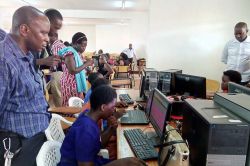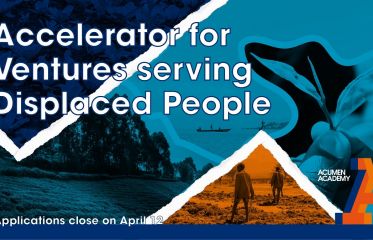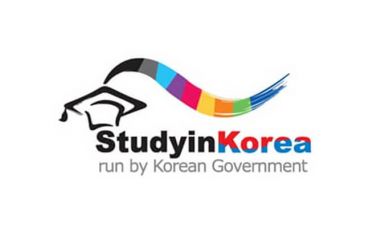Breaking News
- Flexible Remote Work Opportunity for University Students: Earn $100–$250 Per Month ...Read More
- Ministry of Education and Sports Azerbaijan Government Scholarships For 2025-2026 Academic Year ...Read More
- Government Sponsorship Undergraduate Admission Lists 2025-26 for Makerere University ...Read More
- Ministry of Education And Sports: Egyptian Government Scholarships 2025-2026 Academic Year ...Read More
- Ground Breaker Full Scholarship for girls to study Software Engineering 2025 July Intake ...Read More
- Tony Elumelu Foundation Entrepreneurship Programme (TEEP) 2025 for young African Entrepreneurs ...Read More
- DESIGNING FUTURES 2050 International Design Competition 2025 (€15,000 prize) ...Read More
- Ground Breaker Full time Scholarship for girls to study Software Engineering 2025 Intake ...Read More
- Ministry of Education And Sports Algerian Vocational Training Scholarships for 2024-2025 AY ...Read More
- Ministry of Education and Sports Advert for the Algerian Government Scholarships for 2024-2025 ...Read More
Mental Health and Substance Abuse Social Worker
Assess and treat individuals with mental, emotional, or substance abuse problems, including abuse of alcohol, tobacco, and/or other drugs. Activities may include individual and group therapy, crisis intervention, case management, client advocacy, prevention, and education.
Add to FavouritesDaily Tasks
1. Counsel clients in individual or group sessions to assist them in dealing with substance abuse, mental or physical illness, poverty, unemployment, or physical abuse.
2. Monitor, evaluate, and record client progress with respect to treatment goals.
3. Interview clients, review records, conduct assessments, or confer with other professionals to evaluate the mental or physical condition of clients or patients.
4. Collaborate with counselors, physicians, or nurses to plan or coordinate treatment, drawing on social work experience and patient needs.
5. Counsel or aid family members to assist them in understanding, dealing with, or supporting the client or patient.
6. Refer patient, client, or family to community resources for housing or treatment to assist in recovery from mental or physical illness, following through to ensure service efficacy.
7. Modify treatment plans according to changes in client status.
8. Educate clients or community members about mental or physical illness, abuse, medication, or available community resources.
9. Assist clients in adhering to treatment plans, such as setting up appointments, arranging for transportation to appointments, or providing support.
10. Increase social work knowledge by reviewing current literature, conducting social research, or attending seminars, training workshops, or classes.
11. Plan or conduct programs to prevent substance abuse, combat social problems, or improve health or counseling services in community.
12. Supervise or direct other workers who provide services to clients or patients.
Key Knowledge Areas
Psychology — Knowledge of human behavior and performance; individual differences in ability, personality, and interests; learning and motivation; psychological research methods; and the assessment and treatment of behavioral and affective disorders.
Therapy and Counseling — Knowledge of principles, methods, and procedures for diagnosis, treatment, and rehabilitation of physical and mental dysfunctions, and for career counseling and guidance.
Customer and Personal Service — Knowledge of principles and processes for providing customer and personal services. This includes customer needs assessment, meeting quality standards for services, and evaluation of customer satisfaction.
Sociology and Anthropology — Knowledge of group behavior and dynamics, societal trends and influences, human migrations, ethnicity, cultures and their history and origins.
English Language — Knowledge of the structure and content of the English language including the meaning and spelling of words, rules of composition, and grammar.
Clerical — Knowledge of administrative and clerical procedures and systems such as word processing, managing files and records, stenography and transcription, designing forms, and other office procedures and terminology.
Education and Training — Knowledge of principles and methods for curriculum and training design, teaching and instruction for individuals and groups, and the measurement of training effects.
Computers and Electronics — Knowledge of circuit boards, processors, chips, electronic equipment, and computer hardware and software, including applications and programming.
Key Skills
Active Listening — Giving full attention to what other people are saying, taking time to understand the points being made, asking questions as appropriate, and not interrupting at inappropriate times.
Social Perceptiveness — Being aware of others' reactions and understanding why they react as they do.
Speaking — Talking to others to convey information effectively.
Reading Comprehension — Understanding written sentences and paragraphs in work related documents.
Coordination — Adjusting actions in relation to others' actions.
Critical Thinking — Using logic and reasoning to identify the strengths and weaknesses of alternative solutions, conclusions or approaches to problems.
Monitoring — Monitoring/Assessing performance of yourself, other individuals, or organizations to make improvements or take corrective action.
Service Orientation — Actively looking for ways to help people.
Writing — Communicating effectively in writing as appropriate for the needs of the audience.
Complex Problem Solving — Identifying complex problems and reviewing related information to develop and evaluate options and implement solutions.
Learning Strategies — Selecting and using training/instructional methods and procedures appropriate for the situation when learning or teaching new things.
Persuasion — Persuading others to change their minds or behavior.
Active Learning — Understanding the implications of new information for both current and future problem-solving and decision-making.
Judgment and Decision Making — Considering the relative costs and benefits of potential actions to choose the most appropriate one.
Negotiation — Bringing others together and trying to reconcile differences.
Time Management — Managing one's own time and the time of others.
Instructing — Teaching others how to do something.
Systems Analysis — Determining how a system should work and how changes in conditions, operations, and the environment will affect outcomes.
Management of Personnel Resources — Motivating, developing, and directing people as they work, identifying the best people for the job.
Systems Evaluation — Identifying measures or indicators of system performance and the actions needed to improve or correct performance, relative to the goals of the system.













































































































